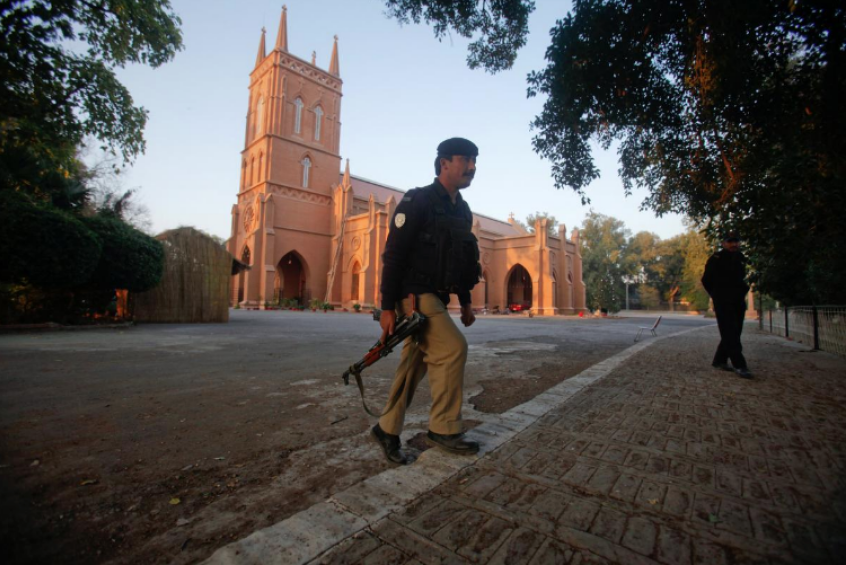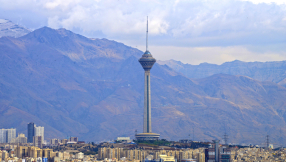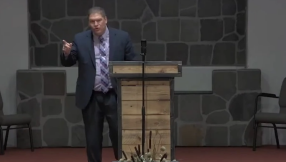
Jeremy Hunt has reiterated his commitment to addressing the global persecution of Christians in a new report from the Foreign Office on the state of democracy and human rights around the world.
The Foreign Secretary said in the preface to the report that he was "deeply disturbed" to learn that 215 million Christians faced persecution last year, according to figures from Christian campaign group Open Doors.
"I am not convinced that our efforts have always been commensurate with the scale of the problem or the empirical evidence that Christians often endure the greatest burden of persecution," he said.
"We must never allow a misguided sense of political correctness to inhibit our response."
He added that protecting human rights and safeguarding British values were "not optional extras" for the Foreign and Commonwealth Office (FCO).
"They are part of who we are. I am determined that British diplomacy will continue to uphold the principles of humanity and fairness that our country has always stood for," he said.
Mr Hunt launched a review into persecution earlier this year, overseen by the Bishop of Truro, the Rt Rev Philip Mountstephen.
The findings of the review are expected to be released in mid-July but an interim report has already warned that the level of persecution being experienced by Christians is coming close to "genocide".
The latest Human Rights and Democracy report, which is released each year by the FCO, said that it was "of increasing international concern" that some countries are falling short on their obligations to uphold the right to freedom of religion or belief.
"Violations in 2018 ranged from inhibiting the freedom to worship, for example in the Maldives and Russia, to discrimination or targeted attacks against members of minority groups because of their religious identity, such as in Iran, Iraq, Pakistan, and Burma," the report states.
Christian women and children are "particularly vulnerable" and "often subjected to sexual violence as a result of their beliefs", it warned.
In his own foreward to the report, Lord Tariq Ahmad, the UK Government's Special Envoy on Freedom of Religion or Belief, said he was "determined to extend that freedom and champion the rights of people, no matter where they live or who they are, or what their belief."
He said the UK Government was taking a "3-pronged approach" to challenge states that violate or fail to protect human rights, to "work constructively with those that are open to change", and collaborate with governments, international organisations and civil society groups that share the same aims.
Countries highlighted in the report include Pakistan, where it noted "the misuse of blasphemy legislation, and in particular the case of Asia Bibi". There were also "recurrent" reports of forced conversions to Islam and forced marriages to Muslim men of Hindu and Christian women.
"The UK government regularly applied diplomatic pressure on countries which abused their blasphemy laws to target religious minorities," the report said.
"These diplomatic efforts were often not publicised because of the sensitivity of the issue, and of the need to protect those abused and persecuted.
"The UK did make public statements where we judged doing so was in the best interests of victims, for example when Lord Ahmad met Pakistan's Human Rights Minister to call for the protection of members of religious minority communities and raised specific cases and concerns."
In 2019, the report said that the UK was continuing to support projects in Pakistan aimed at improving awareness of modern slavery, and promoting religious tolerance and diversity.
In Iran, the report criticised the arrest of Christians on charges of proselytizing and the imprisonment of recent converts to Christianity.
"Iranian authorities continued to violate the right to freedom of religion or belief, and to discriminate against ethnic minorities," it said.
"Members of religious minorities faced restrictions and discrimination for peacefully manifesting their beliefs."
It continued: "Despite notionally benefiting from constitutional recognition and protection, Christians continued to be persecuted in a systemic and institutionalised manner."
Elsewhere in the Middle East, the report said that the UK had been supporting efforts to help Christians and other minority groups in Iraq to return home, while in Syria it was working to bolster civil society, and promote human rights and accountability.
It has also been "at the forefront of global efforts" to bring the Islamic State to justice, the report said.
On China, the report raised serious concerns about a "deepening crackdown" by the government on religious and ethnic minorities, as well as "credible" reports of the use of political re-education camps and "widespread" surveillance and restrictions targeting Uyghur Muslims in particular.
"New regulations introduced in February gave the authorities more control over how individuals practiced their religions. In September, the Vatican signed an agreement on the appointment of bishops with China. However, reports of the persecution and detention of Christians continued, and Beijing's largest house church (the Zion Church) and the Early Rain Covenant Church in Chengdu were closed," the report said.
The report said that, going forward, the UK Government would use its diplomatic network to defend the freedom of religion and belief, and promote respect between religious communities.
"We will start to look into the role of education in promoting respect between people of different religions and of no religion, and will develop a toolkit to challenge educational norms which incite violence and hatred," it said.













